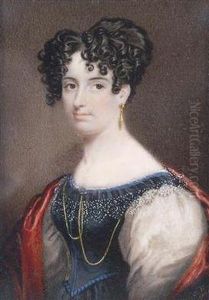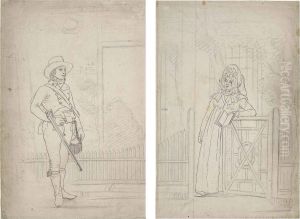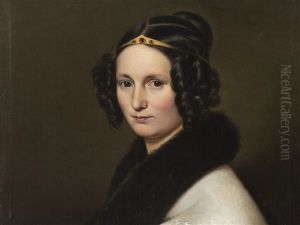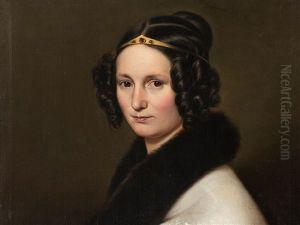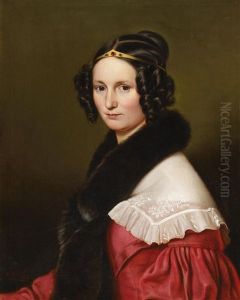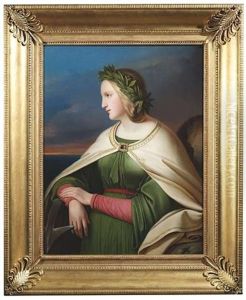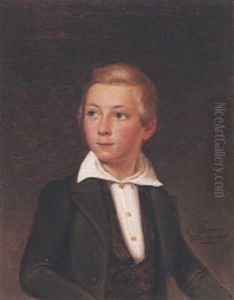Johann Conrad Dorner Paintings
Johann Conrad Dorner, also known as Johann Konrad Dorner the Elder, was a German painter born on December 16, 1783, in Ehingen, Germany. He is not to be confused with his son Johann Conrad Dorner the Younger, who was also a painter. Dorner the Elder initially trained under a local painter in his hometown before moving to the Academy of Fine Arts in Vienna, where he further developed his artistic skills.
His works were primarily focused on religious themes, and he was known for his frescoes and altarpieces in Southern Germany. He also produced a number of portraits during his career. However, it is his religious art that has been best remembered and appreciated for its depth of emotion and adherence to the Nazarene movement, which sought to revive the spirituality and sincerity found in medieval and early Renaissance art.
Dorner worked in various churches, contributing significantly to the religious art landscape of the 19th century in the region. His style was characterized by its fine detail, vibrant colors, and a certain piety that was in demand during the period.
Johann Conrad Dorner died on November 21, 1842, in Dillingen an der Donau, Germany. His legacy lives on in the churches and religious institutions that house his works, and through the works of his son, who continued in his father's artistic footsteps. Despite not being as widely known as some of his contemporaries, Dorner's contribution to German religious art during his time was significant, and his works remain a testament to the skill and devotion of artists in the Biedermeier period.
